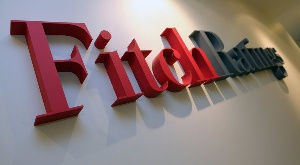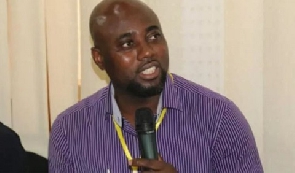Business News of Monday, 15 May 2017
Source: thebftonline.com
Fitch lauds progress in the Ghanaian economy
Ratings agency Fitch has lauded government’s efforts in getting the economy back on track after a recent ‘crisis’ that forced the economy to seek solace in a US$918 million bailout from the International Monetary Fund (IMF).
According to Fitch in a statement issued on Friday, “the country is making progress in stabilising its economy after its recent crisis period, with an expected revival in GDP growth, declining inflation, a more stable currency and increasing foreign exchange reserves.”
The ratings agency is predicting that the Akufo-Addo-led government will make progress in reducing the budget deficit after the election-related slippage in 2016, albeit with continued downside risks.
The agency in its Friday statement announced that it has revised the outlook on Ghana's long-term foreign and local-currency Issuer Default Ratings (IDR) to Stable from Negative and affirmed the IDRs at 'B'.
“For Fitch, macro-economic indicators such as a rebound in the local currency, drop in the central bank’s policy rates, rising oil production, the auditing of unapproved expenditure will all help to lower the deficit and spur growth.
Fitch is forecasting that the economy will grow about 6 percent this year from an estimated 3.6 percent in 2016, when it was hampered by lower than expected oil production and power cuts.
“Inflation fell to 12.9 percent year-on-year in March, from a peak of 19 percent in March 2016. The cedi has recovered to 4.2/USD, after depreciating to 4.7/USD in early March. The improvement in the macroeconomic environment has allowed the Bank of Ghana to cut its policy interest rate to 23.5 percent from a peak of 26 percent in 2016.
Further, rising oil production and the benefits from macroeconomic stability will support Ghana's medium-term growth potential above 6 percent, a key rating strength,” the ratings agency said.
Ghana last year recorded a budget deficit of estimated 8.9 percent of GDP (on a cash basis) in the run-up to December general elections, compared with a government and IMF target of 5.3 percent, and an outturn of 6.3 percent in 2015.
The cash deficit includes up to US$1.3 billion (3% of GDP) in off-budget and unapproved spending. On a commitment basis, accounting for an additional US$650 million in unpaid commitments, Ghana's deficit widened to as much as 10.5 percent of GDP.
Fitch noted that some of the unapproved expenditure is presently being audited and a significant chunk may be written down, which would lower the deficit.
Fitch forecasts the 2017 budget deficit to narrow to 7.5 percent of GDP on a cash basis, and further to 5.5 percent in 2018. The government's 2017 deficit forecast of 6.5 percent of GDP is based on an expected increase in tax revenues and a cut to capital expenditures.
Fitch said it is expects an increase in tax revenues will be difficult to realise, as the budget contains significant tax cuts aimed at boosting the business climate.
The statement stated that on the expenditure side, interest costs will continue to exert upward pressure. The country’s interest costs are 32 percent of its general government revenues, a level well above Fitch’s ‘B’ median of 9 percent.
“A lack of transparency and accountability within the line ministries has persistently led to substantial off-budget spending and the accumulation of arrears. Successful implementation of the measures outlined in the Public Financial Management Act, 2016 would help control expenditure and keep spending focused on the policy priorities outlined in the budget,” the statement.











